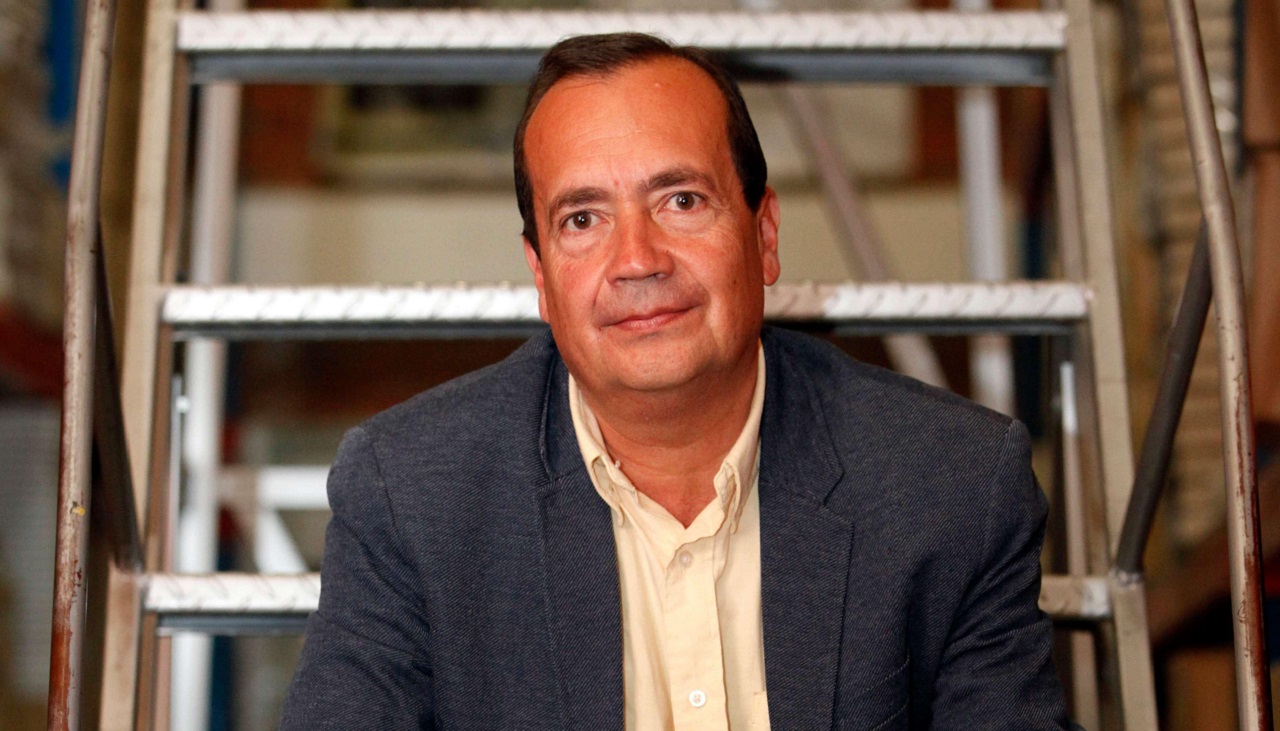
How was Mexican culture honored at the Bogotá Book Fair?
A conversation with Colombian writer Alfonso Carvajal about the 35th edition of the International Book Fair of Bogota, which ended a week ago.
Alfonso Carvajal has explored stories and narrative forms, his feet are in Colombia, but his brain and talent are knocking on the doors of universality and the dilemmas of the human condition.
This is what has happened with one of his novels, Ruega por nosotros (‘Pray for us’) (2015), the recreation of a real-life event, terrifying, symbolic, transcendent and with a resonance in the media at the time. These days, the work will be published by a Mexican publisher and Carvajal has long received offers to make it into a television series or a feature film.
He is part of the generation of writers born after the Latin American Boom, a luxurious concentration of some of the best writers of the 20th century.
Carvajal and Mexico are united these days by the Bogotá International Book Fair (Filbo), one of the most important in the world. Not only a writer, but also an editor and a journalist, Carvajal directed and published a special on Mexico and its culture, as Mexico was this year’s guest of honour at Filbo. It was circulated in print among visitors to the Fair and in six universities, as well as in a digital version.
In an interview with AL DÍA, Alfonso Carvajal spoke about Mexico, the publishing industry, Ruega por nosotros and his publishing adventure, among other topics.
What is Mexico’s historical weight in literary production?
When I found out that Mexico was the guest country at the Bogotá Book Fair, the idea of producing a newspaper on its cultural expressions, especially its literature, was born. Octavio Paz, Juan Rulfo and Arreola are part of my sentimental education. Buñuel and Ripstein, in film, have shown me the subsoil of the Mexican soul. I spoke with Miguel Ángel Flórez Góngora, a Colombian editor and researcher based in Mexico, and we worked for four months on the project that was presented at the Fair.
We realized that it was the first time that a newspaper had been produced for a guest country in the 35 years of the Fair’s history and that there was no publication about such an important event that attracts more than half a million people in two weeks. Unomas, an illustrator with whom we share a rebellious spirit of defiance, appeared along the way, and his cartoons and illustrations brought the newspaper to life. I believe that women enhance the publication. Writers such as Fernanda Melchor, Cristina Rivera Garza, Alejandra Jaramillo, Johanna Malcher, Stefanie Mayer, Valentina Ramona de Jesús and Ana Patricia Reyes are part of this story. The virtual newspaper has 50 pages and the printed one 40. It covers literary, gender, architecture, painting and translation issues.
THE IMPACT OF RUEGA POR NOSOTROS
Speaking of Mexico, you are going to make an incursion with one of your novels. What is it about and what is its significance?
My novel Ruega por nosotros will soon be republished by editorial Del Lirio, in Mexico. As it is a reading country, with very varied social dynamics, I am very curious about its reception. It is a complex subject that brings together religion, homosexuality, love and death. Although it is an episode that happened in Colombia, through fiction the novel acquires a Shakespearean, universal character.
We know that you have been approached to take the novel to the cinema. Is it worth the effort to transfer the story from paper to screen?
I wrote Ruega por nosotros as a dramatic text. I immersed myself in the psychology of the characters and built a world where reality and fiction were a single frame, a single literary entity. The story has attracted some audiovisual producers, who want to make a series, but I think that trying to make a good film would be enough.
MORE CREATIVE, LESS BUSINESSLIKE
Beyond sales, the fairs bring writers and readers closer together. But they also confront quality with the hucksters of virality. How does a writer deal with this increasingly frequent scenario?
The literary and publishing worlds, although inseparable, have extensive incompatibilities. The media and the commercial expand without any antidote in sight. And literary quality, its intrinsic power, has diminished. Now other values prevail, mainly income, but the literary, in its form and substance, will always be there and only time will tell what endures and what has ceased to exist. We still read Kafka, Cervantes, Homer, Shakespeare, Pessoa and Dostoevsky. That is enough for us to dream.
Filbo is among the 10 most important in the world. What is it unnecessary and what is it lacking?
RELATED CONTENT
The Bogotá Book Fair is a seller, which is not a bad thing, as it creates readers. It has too much money and its owners lack culture. We need more creatives and less businessmen.
What do you think of the challenge of acceptance by readers. Even universality as a formula for breaking down barriers and reaching diverse audiences?
We need to make readers more visible, give them tools, put them at the center of the world and not just as another buyer. It is not a utopia. There is a lack of human and social sensitivity.
You recently got involved in publishing with Controversia Editorial. What is your assessment and how do you feel about what is happening in the publishing industry from that point of view?
Controversia Editorial was born out of survival and independence. My passion has been literature, and the beautiful profession of publishing has helped me to eat and pay for services, as well as to delve into other areas of knowledge. Controversia is an instrument to create projects that I could not carry out in the Colombian publishing world.












LEAVE A COMMENT: